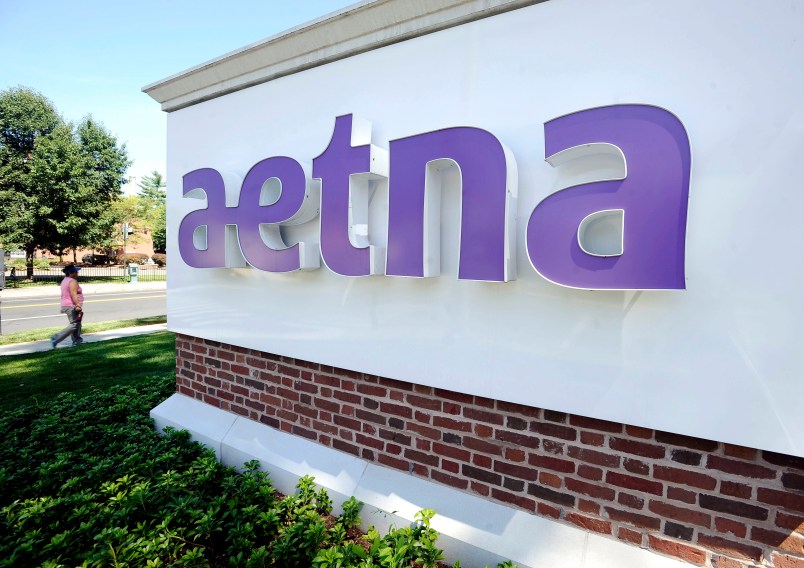Aetna will become the latest health insurer to chop participation in the Affordable Care Act’s public exchanges when it trims its presence to four states for 2017, from 15 this year.
The cuts, announced late Monday, come after UnitedHealth and Humana announced their own exchange pull backs for 2017 and after several nonprofit insurance co-ops have shut down.
Dwindling exchange participation from insurers is becoming a concern, especially in some rural markets, because competition is supposed to help control insurance price increases, and many carriers have already announced plans to seek price hikes of around 10 percent or more for 2017. Some states like Alaska and Oklahoma will be left with only one participant selling individual coverage in 2017.
But government officials say the exchanges are improving and healthier people are signing up, which helps insurers balance the claims they get from sicker customers.
“Aetna’s decision to alter its Marketplace participation does not change the fundamental fact that the Health Insurance Marketplace will continue to bring quality coverage to millions of Americans next year and every year after that,” said Kevin Counihan, CEO of the federal exchange operator HealthCare.gov, in an emailed statement.
Aetna had said earlier this month it was canceling expansion plans for its exchange business in 2017, and it promised a hard look at its current participation. The cuts mean it will sell coverage on exchanges in 242 counties next year, down from 778. The Hartford, Connecticut-based insurer will sell on exchanges in Delaware, Iowa, Nebraska and Virginia next year.
The company covered about 838,000 people through the individual exchanges at the end of the second quarter.
The exchanges have helped millions of people gain health coverage, most with help from income-based tax credits. But insurers say this relatively small slice of business has generated huge losses since they started paying claims for it in 2014. Insurers have struggled to enroll enough healthy people to balance the claims they pay from high-cost customers, and they have complained about steep shortfalls in support from government programs designed to help them.
The nation’s largest insurer, UnitedHealth Group Inc., had expanded rapidly into the public exchanges and sold coverage in 34 states this year. But it also scaled back quickly and only plans to offer policies in three states next year, Nevada, Virginia and New York.
Anthem, which sells coverage on 14 state-based exchanges, surprised analysts last month when they said they were preparing for a loss on that part of the business this year.
Aetna has said it has been swamped with higher than expected costs, particularly from pricey specialty drugs. The nation’s third-largest insurer said a second-quarter pre-tax loss of $200 million from its individual insurance coverage helped it decide to limit exposure to the exchanges.
Copyright 2016 The Associated Press. All rights reserved. This material may not be published, broadcast, rewritten or redistributed.







From 2012 to 2015, Aetna’s revenue and before tax income both increased 18% per year, and after tax income increased 13% per year. For the top five publically traded insurers (United Health, Anthem, Aetna, Humana, Cigna) the combined increases are 12%, 8.6%, and 3.8%. And Anthem wants to buy Cigna, Aetna wants to buy Humana.
požrešen barabe
Help me out here, someone who knows stuff: wasn’t this what risk corridors were designed to help with? And weren’t they labeled a “bail out” and repealed (in a Rubio amendment)? And weren’t these risk corridors used, without controversy, in Bush’s Medicare reform a few years earlier?
“Aetna has said it has been swamped with higher than expected costs, particularly from pricey specialty drugs.” Costs --> Revenues for our huge health care industry. Short of an independent audit of the whole “industry”, fingering the ACA could merely cover for darker business and political strategies. There’s been so many bipartisan compromises in its design, followed by R congressional abuse and dysfunction, how could we expect anything more of ACA’s function?
That Aetna is covering some care for 838,000 people attests to hard work by ACA stakeholders nationwide who serve health over wealth. Imagine where we’d be without all the wrenches in the works…